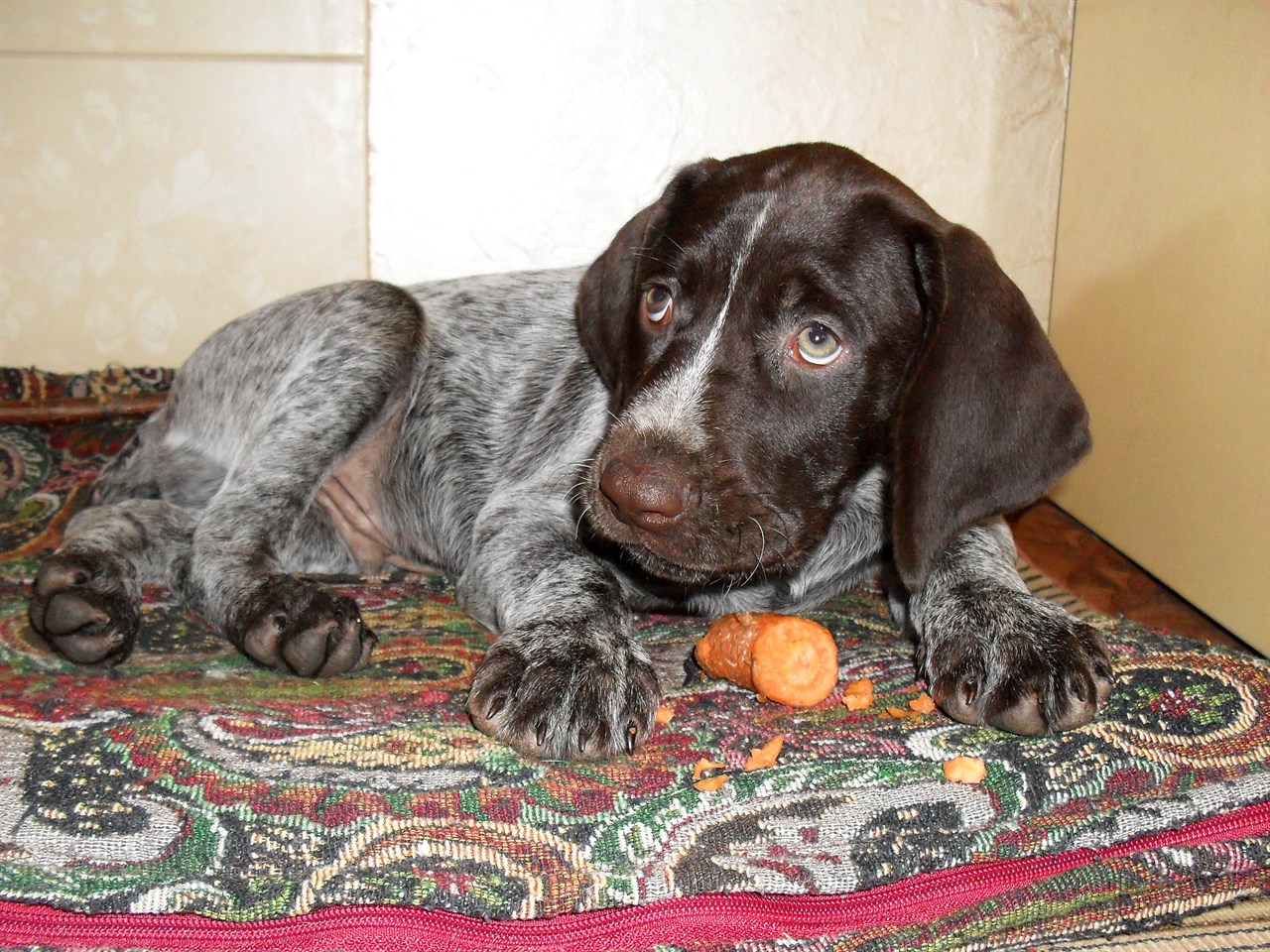Feeding Habits and Food Requirements of the German Wirehaired Pointer

Proper nutrition is essential for the health and well-being of your German Wirehaired Pointer (GWP). These active and energetic dogs require a balanced diet that supports their energy levels, muscle development, and overall health. Here are some guidelines for feeding your GWP.
Age-Appropriate Feeding
- Puppy Stage: If you have a GWP puppy, start them on a high-quality puppy food formulated for their specific size and breed. Puppies require more calories and nutrients for growth, so follow the recommended feeding guidelines provided on the food packaging or by your veterinarian.
- Adult Stage: As your GWP reaches adulthood, typically around 12 to 18 months, transition them to an adult dog food. Be sure to choose a formula that meets their energy needs and doesn't contribute to excess weight gain.
- Senior Stage: When your GWP enters their senior years, usually around 7 to 8 years of age, consider switching to a senior-specific dog food. These formulations address the changing nutritional requirements and potential age-related health concerns.
High-Quality Dog Food
Choose a high-quality dog food that lists a quality source of animal protein, such as chicken, turkey, or beef, as the first ingredient. Avoid foods with fillers like corn, wheat, or soy.Look for a food that provides a balanced blend of protein, fats, carbohydrates, vitamins, and minerals. GWPs benefit from a diet that is well-rounded and supports their active lifestyle.
Portion Control
Avoid overfeeding your GWP to prevent obesity, which can lead to health issues. Follow the feeding guidelines on the food packaging as a starting point, but monitor your dog's weight and adjust portions as needed. Consult with your veterinarian if you're unsure about portion sizes.
Meal Frequency
Most adult GWPs do well with two meals a day, one in the morning and one in the evening. This helps regulate their energy levels and aids in digestion. Puppies may require more frequent meals.
Fresh Water
Always provide your GWP with access to fresh, clean water. Proper hydration is crucial for their health, especially after exercise or in hot weather.
Special Dietary Considerations
If your GWP has specific dietary needs or allergies, consult with your veterinarian to choose an appropriate food. Some dogs may benefit from grain-free or limited-ingredient diets.
Treats and Snacks
Use treats in moderation, as excess treats can contribute to weight gain. Opt for healthy, low-calorie treats or use pieces of their regular kibble as rewards during training.
Dietary Supplements
Discuss with your veterinarian whether your GWP needs any dietary supplements. Most high-quality dog foods provide complete nutrition, but certain supplements may be recommended based on your dog's individual health needs.
Regular Veterinary Checkups
Regular checkups with your veterinarian are essential to monitor your GWP's overall health and ensure their dietary needs are being met.
By providing your German Wirehaired Pointer with a balanced diet, portion control, and regular veterinary care, you can help them maintain a healthy weight, energy levels, and overall well-being. Remember that individual dogs may have unique dietary requirements, so it's important to tailor their diet to their specific needs and consult with a veterinarian for guidance when necessary.
German Wirehaired Pointer puppies for sale
- Find German Wirehaired Pointer puppies for sale in ACT
- Find German Wirehaired Pointer puppies for sale in NSW
- Find German Wirehaired Pointer puppies for sale in NT
- Find German Wirehaired Pointer puppies for sale in QLD
- Find German Wirehaired Pointer puppies for sale in SA
- Find German Wirehaired Pointer puppies for sale in TAS
- Find German Wirehaired Pointer puppies for sale in VIC
- Find German Wirehaired Pointer puppies for sale in WA